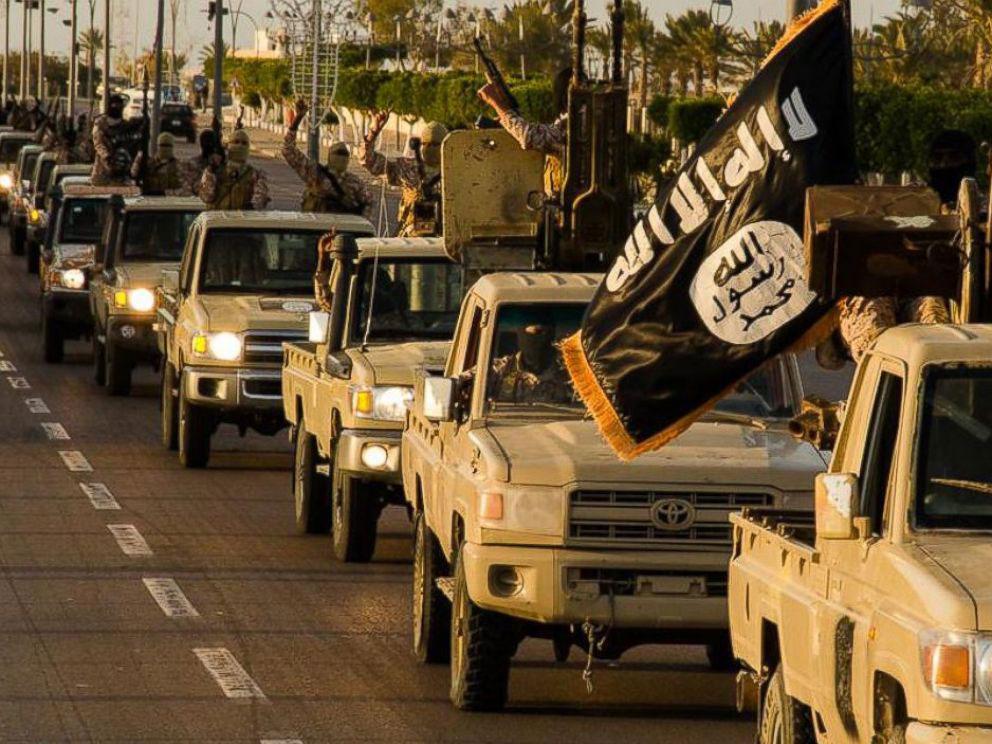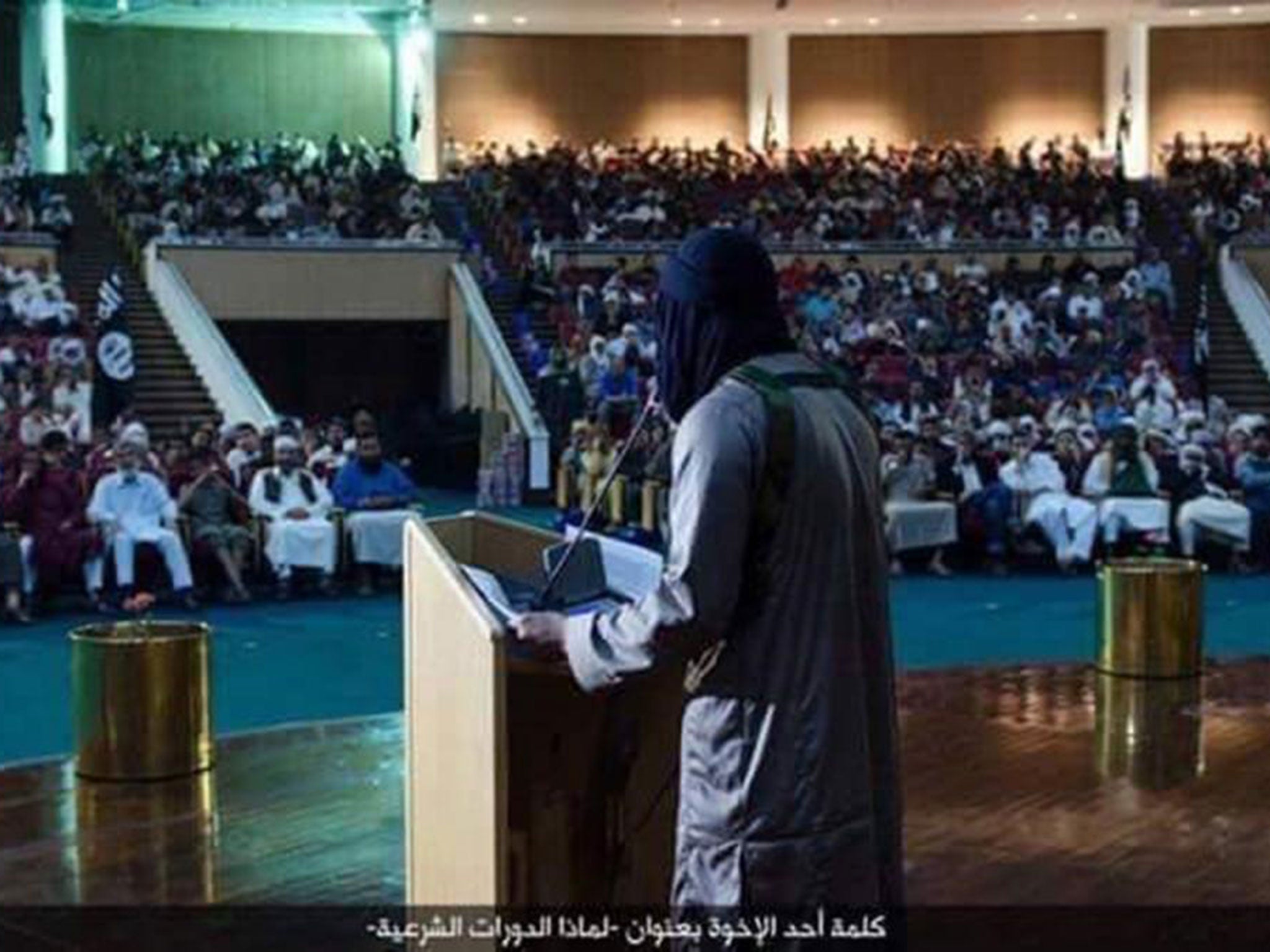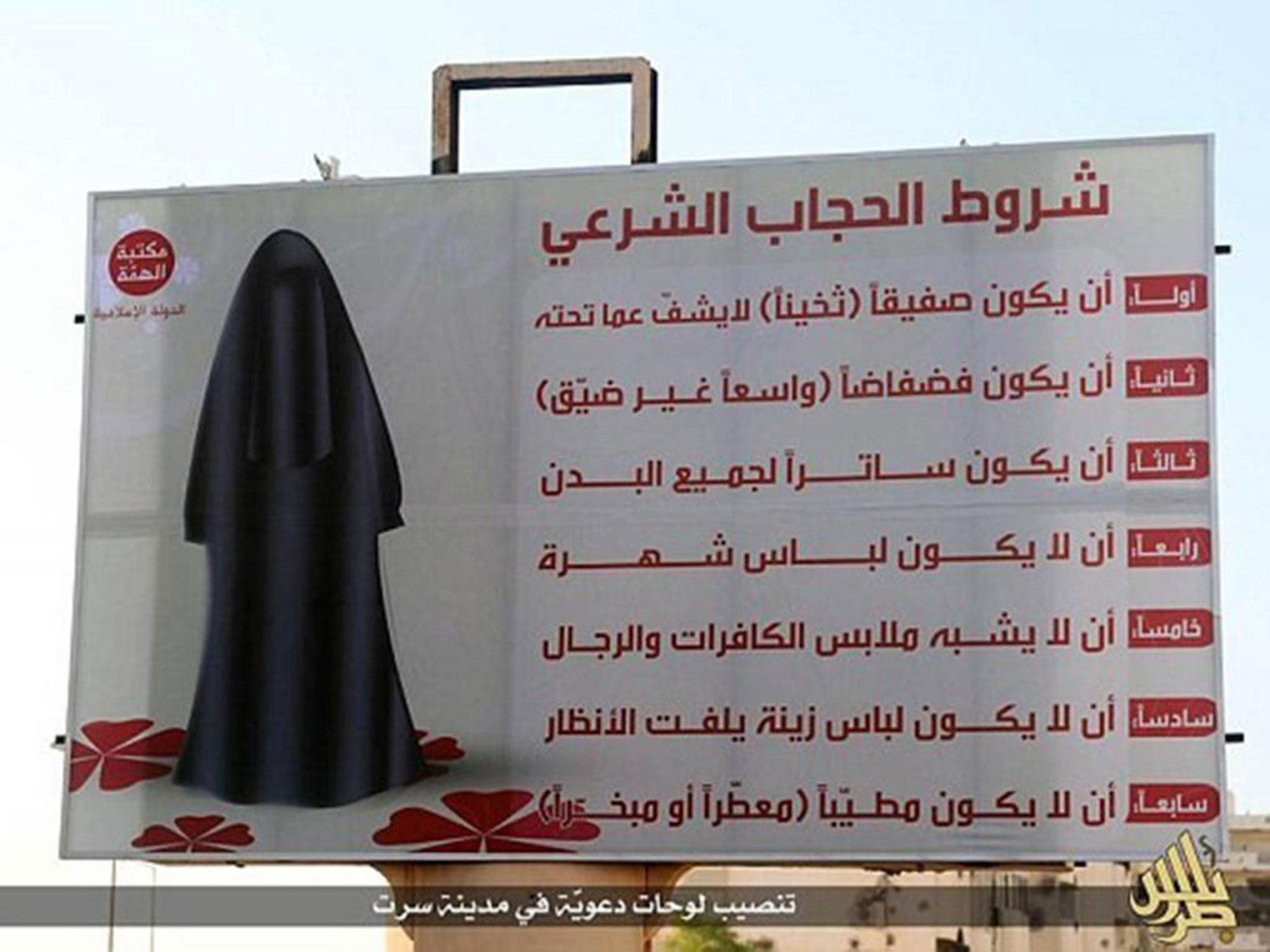Isis in Libya: Executions and 'unbearable' atrocities in group's biggest stronghold outside Iraq and Syria
'We were filled with hope. Then step by step, Daesh took over. Now we feel we are cursed.'

Your support helps us to tell the story
From reproductive rights to climate change to Big Tech, The Independent is on the ground when the story is developing. Whether it's investigating the financials of Elon Musk's pro-Trump PAC or producing our latest documentary, 'The A Word', which shines a light on the American women fighting for reproductive rights, we know how important it is to parse out the facts from the messaging.
At such a critical moment in US history, we need reporters on the ground. Your donation allows us to keep sending journalists to speak to both sides of the story.
The Independent is trusted by Americans across the entire political spectrum. And unlike many other quality news outlets, we choose not to lock Americans out of our reporting and analysis with paywalls. We believe quality journalism should be available to everyone, paid for by those who can afford it.
Your support makes all the difference.Isis has executed civilians for “sorcery” and “insulting God” in its newest stronghold in Libya as it gathers power in the vacuum left by the country’s civil war.
The so-called Islamic State controls more than 120 miles of Mediterranean coastline, mostly around the city of Sirte, where militants seized power last year.
The hometown of Libyan leader Muammar Gaddafi has been transformed into a theatre of the oppression and brutality practiced in Syria and Iraq, with regular public executions and corpses left hanging or “crucified” in the streets.
A report by Human Rights Watch (HRW) found that at least 49 people have been executed since February 2015, including political opponents, civilians and captives decapitated or shot.
A 30-year-old woman interviewed by the group wept as she explained her family was trapped under Isis rule.
“Life in Sirte is unbearable,” Ahlam said. “Everyone is living in fear. They are killing innocent people.
“There are no groceries, the hospital has no doctors or nurses, there is no medicine.
“There are spies on every street. Most people have left but we are trapped. We don’t have enough money to leave.”
The city is Isis’ biggest stronghold outside Iraq and Syria, with militants in control of its port, air base, main power station and radio station, along with all local government offices and finances.
Their advance started in October 2014 and jihadists have since taken control of swathes of northern Libya, prompting US air strikes and the deployment of British special forces as chaos continues following the Nato-backed overthrow of Gaddafi in 2011.
More than 40 residents interviewed in the area described public beheadings, corpses in orange jumpsuits hanging from scaffolding and masked fighters kidnapping people from their beds in the night.
Isis has also installed “morality police” who patrol the streets, aided by informants, to threaten, fine and flog anyone deemed to be flouting the group’s interpretation of Sharia law.
Men have been punished for smoking and listening to music, as well as failing to ensure female relatives are wearing the loose black coverings made compulsory by militants.
Jihadists summon residents to watch executions in a central square using loudspeakers, HRW reported, either beheading prisoners with a sword or shooting them in the head.
Some bodies have been hung from scaffolding on a nearby roundabout wearing orange jumpsuits, in a pose likened to “crucifixions” by witnesses.
Among those killed was 23-year-old Amjad bin Sasi, who was sentenced to death for “insulting God” while swearing during a dispute with a neighbour – although relatives said he was persecuted for his previous loyalty to a local group of anti-Isis fighters aligned with Libya Dawn.
“The judge wanted Amjad to repent for opposing Daesh (Isis), but Amjad insulted the judge and spat at him,” one of his relatives. Two days later, Isis militants publicly executed him.
Anyone perceived to support resistance against the terrorist group is also killed, including a local Imam assassinated in March 2015, sparking an uprising that was brutally quashed.

At least two men were beheaded on accusations of “sorcery” in October, while alleged spies, local officials and political opponents were also among those killed.
Another punishment inflicted by jihadists is the looting and destruction of homes, with property and possessions handed to Isis fighters, while Isis has also made the attendance at all five daily prayer sessions compulsory.
The Ouagadougou Conference Complex, built to host Gaddafi’s pan-African summits, is now used as the location for Sharia lectures and young men and boys are reportedly being forced to attend “religious training”.
Younger children are questioned by Isis militants on their Islamic knowledge, while girls as young as 10 are forced to wear full length black abayas and follow rules stipulating they cannot leave the house without a male relative.
Jamal, who witnessed school quizzes before leaving Sirte in March, told HRW: “Students are asked such questions as, ‘What is the correct way to perform the fajr [Muslim dawn prayer]?’ ‘What is the importance of the hijab (headscarf) in Islam?’ ‘Who is the current caliph of all Muslims?’”
Women recounted being ordered to follow a seven-point decree stipulating their clothing and being stopped by regular inspections by Isis morality police, who impose fines or floggings for violations.

The terrorist group has imposes heavy taxes on merchants and farmers and has tightened control on banks and communications, with lines running through Isis-run call centres.
Meanwhile, Sirte’s main hospital and public has been left largely devoid of staff after doctors fled, with remaining medics confiscated for Isis fighters as medicine shortages worsen.
HRW researchers said Isis was failing to provide basic necessities to the local population and diverting food, medicine, fuel, and cash to around 1,800 of its fighters, police and functionaries.
The organisation said militants’ war crimes and human rights abuses in its Libyan territories could amount to crimes against humanity.
“As if beheading and shooting perceived enemies isn’t enough, Isis is causing terrible suffering in Sirte even for Muslims who follow its rules,” said Letta Tayler, a senior counterterrorism researcher.
“While the world’s attention is focused on atrocities in Syria and Iraq, Isis is also getting away with murder in Libya.”
HRW is calling on all parties in Libya to protect civilians and prosecute Isis and other groups responsible for atrocities, urging the International Criminal Court, UN Human Rights Council and Security Council to investigate.
Amid reports that the UK, US, Italy and France are considering an air strikes campaign against Isis in Libya, activists warned of the consequences of “failure to act”.
More than two-thirds of Sirte’s 80,000 residents have already fled, HRW said, but face an uncertain future as an internationally-backed unity government struggles to gain control of Libya from an array of competing militias.
Ali, a man who fled Isis in Sirte, said the optimism after the city fell to rebels with the killing of Gaddafi in October 2011 had been crushed in the ensuing chaos.
“We were filled with hope,” he said. “Then step by step, Daesh (Isis) took over. Now we feel we are cursed.”
Join our commenting forum
Join thought-provoking conversations, follow other Independent readers and see their replies
Comments